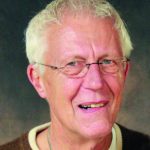Wheel tax to fund four road repairs
By Scott Bellile
Various public works projects will take place in New London this summer, including four wheel tax-funded road repairs and utility extensions to a future subdivision.
The New London City Council voted unanimously to proceed with the projects at its meeting on May 14.
New London Public Services Director Chad Hoerth said last week contracts are being finalized for all the projects, so construction timelines have not been set.
Here is a lowdown on the work residents will see happening in the coming months.
Utilities extension
The council awarded a $371,136 contract to Carl Bowers & Sons of Kaukauna to extend utilities from the city to service a future subdivision.
Appleton-based Romenesko Developments Inc. plans to build up to 36 residential units – a mix of single-family homes and duplexes – on a 16-acre property located west of New London High School between County Highway W and Klatt Road. At least 10 houses must be constructed in the next decade.
Romenesko Developments’ land is located in the town of Mukwa. The council unanimously approved the first reading of an ordinance to annex the property into New London. A second reading is not yet scheduled.
Sidewalk projects
The council awarded a $30,026 contract to Jim Fischer Inc. of Appleton to perform spot repairs on various sections of sidewalk throughout the city.
The sidewalk patching program will also include replacement of an apron leading to the west fire department garage bays.
Roadwork
The council awarded a $336,219 contract to MMC Inc. of Appleton to reconstruct two streets and two railroad crossing approaches:
• Cedar Street, from Northridge Drive to the south end.
• Northridge Drive, from North Shawano Street to Pheasant Drive.
• The approach to the High Street railroad crossing.
• The approach to the Industrial Loop Road railroad crossing.
Hoerth told the New London Board of Public Works on May 6 that he reduced the scope of the Cedar Street and Northridge Drive projects because the contractors’ costs are higher this year than he had anticipated.
Initial bids for these four road projects, combined, came in at almost $450,000.
Third District Alderwoman Lori Dean asked Hoerth if scaling back the road projects will compromise the quality of the work.
“I just don’t want to see things come back and bite us later on,” Dean said.
Hoerth said that would not be the case. He eliminated from the project some inlet upgrades that were not required as well as sewer cleaning, which will be performed by city employees instead.
Wheel tax funds road projects
The repairs to Northridge Drive, Cedar Street and the railroad approaches will be funded with revenue generated from the city’s annual $20-per-vehicle wheel tax.
At the board of public works’ June 3 meeting, board members discussed that state lawmakers are considering legislation that would require all wheel taxes to be approved by referendum.
This would be retroactive, meaning voters could potentially repeal New London’s tax. The wheel tax was implemented by the city council, not voters, and went into effect in late 2017.
Since 2017, the tax has generated approximately $180,000 as of the end of April. The money can be carried over years.

Mayor Gary Henke said New London’s wheel tax is a key source of revenue to complete road projects while the state legislature continues to underfund local road projects.
“You know, it’d be nice if the state would get back to where they were 10, 15 years ago with highway aids and so forth. We could probably eliminate the wheel tax, which would be real nice,” Henke said. “But right now it generates a lot of money. We need to spend more on the roads.”
This summer’s slate of projects, as well as the first and only wheel tax-funded project that has been completed thus far – a resurfacing of part of House Road last year – do not involve the city’s major streets.
This is because fixing the longest, most traveled roads would require hundreds of thousands of dollars more than what the wheel tax has generated.
Currently the city is focusing on shorter roads so taxpayers can see results.
Ideally the city would turn to bonding to complete larger road projects and then pay back the wheel tax account, City Finance Director Judy Radke said at a June 5 meeting of the capital equipment and projects committee.
The problem with that idea, Radke said, is if the state passed the aforementioned wheel tax legislation, and voters ultimately repealed the tax, then the city would no longer have revenue to pay back the money it borrowed for larger projects.
Last week a group of Republican state senators proposed a plan to help communities fix their roads: allocating $1 million per county and $1,000 per mile per municipality to fix roads as part of the 2019-21 state budget.
The $133 million to make the state’s proposal happen would come from a one-time budget surplus.
